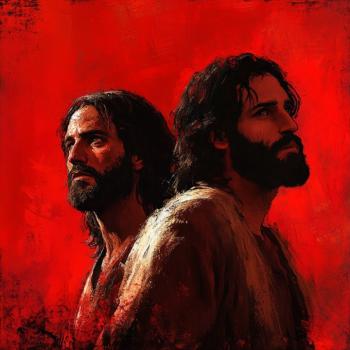 By Bruce G. Epperly
By Bruce G. Epperly
Moderate and progressive Christians are looking for a theology worth believing, to paraphrase my friend Doug Pagitt. In light of the postmodern critique of global and universal narratives, moderate and progressive Christian leaders are rightly careful about proclaiming grand and all-inclusive stories of God, human nature, and the future of the planet. Further, the recognition and embrace of religious and cultural pluralism reminds us that the Christian story is one among many possible human spiritual stories and, more than that, there have been and continue to be many Christian stories, often vying with one another to be the one true account of Christian faith.
All good theology is humble, partaking of the yin and yang of kataphatic and apophatic approaches to knowing God, that is, all things reveal God and yet nothing can ever fully describe God. Still, a living faith needs "good enough" stories. If moderate and progressive Christians refuse to think and then speak theologically, then the Christian story, as articulated within the church as well as in the wider culture, will be dominated by literal interpretations of scripture, violent theories of atonement, imperialistic approaches to other faiths, and exclusive understandings of salvation.
The moderate and progressive streams of Christianity are at a theological and social crossroads. As they look toward the future, moderate and progressive Christians need to think, speak, and act theologically both from the pulpit and classroom and in the public square. An example of this failure to speak theologically and with conviction is evident in my experience as a university chaplain at Georgetown University from 1982-1999. There I found that the majority of students from moderate and liberal congregations used conservative language and theological images to describe their faith, even though they were far from conservative in terms of their understanding of God or social and political ethics. They seemed not to have been given new or alternative possibilities for expressing their faith or reclaiming traditional language in creative ways. While I do not have a crystal ball for discerning the future of moderate and progressive Christianity, I believe that a creative future will involve a lively focus on the integration of theological reflection, spiritual formation, and social action.
I believe that process theology provides a "good enough" theology, a theology that will preach, teach, and inspire an integration of spirituality, social action, and care for the earth. In this brief essay, I will describe some key themes in process theology that I hope to elaborate upon in greater detail over the next few months.
As a fluid and flexible theology for the future, process theology presents, first of all, the vision of a dynamic interdependent universe, congruent with the insights of quantum physics, medicine, biology, and the ecological movement. The universe, the planet, and humankind are, over the long haul and despite reversals, evolving. While progress is not guaranteed, there is a movement within the universe toward beauty, complexity, and growth. Process theologians believe that God is the source of the upward movement of life from amoeba to humankind and beyond. God seeks wholeness and beauty in every moment and over the vast expanse of evolutionary history. From this perspective, process theology's dynamic and interdependent vision of the universe provides a basis for an ecological ethic necessary not only for the mission of the church but the future of the planet. It also suggests that fidelity to God may involve going beyond outworn traditions to express our faith in new and more relevant ways.
Interdependence characterizes the world in which we live. There are no isolated individuals or nations; there are no rugged individualists or self-made people. Instead, even the most creative and influential persons are supported by a web of relationships, without which they would have neither life, creativity, or power. We are all part of communities, and our greatest happiness comes from our contribution to the well-being of the many human and non-human communities that support us. Accordingly, what happens in the Gulf of Mexico shapes the whole earth. American attitudes toward undocumented workers are not just a political issue, but a spiritual and global issue. Process theology reminds us that we are all connected in an intricate web of relationships. Our survival depends on one another's well-being and the well-being of the good earth.




